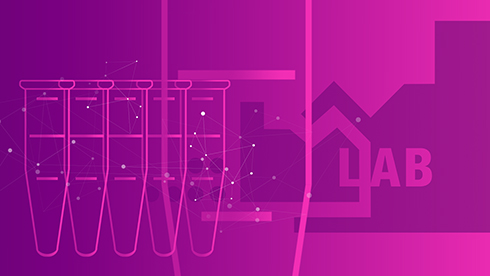
- Share on:
- Bio-rad Twitter
- Bio-rad Facebook
- Bio-rad LinkedIn
Steps to ensure your lab is audit inspection-ready
Audits can be stressful for laboratories. At a minimum of every two years, every detail of a lab setup, processes, training, and documentation is evaluated by external auditors and judged on how consistent their practices are with Standard Operating Procedures (SOPs). While some audits are scheduled with a laboratory in advance, others are unannounced, particularly if they have been cited in past audits. Failing an audit can result in potential fines, the need for re-audits, and a damaged reputation. The good news is there are many preventive measures laboratories can take before an inspection to help prepare. For example, with inspections performed by the College of American Pathologists (CAP), all CAP-accredited laboratories affiliated with an institution accredited by The Joint Commission will be notified one hour prior to their inspection, per the CAP's current collaborative agreement with The Joint Commission. All other CAP-accredited laboratories will be notified up to two weeks prior to the scheduled inspection as part of the CAP's deemed status with the Centers for Medicare and Medicaid Services (CMS). CMS requires that a laboratory be notified of an inspection no sooner than two weeks to the date of the inspection. Avoid the negative consequences of failing an audit—use the following QC audit tips to set the lab up for success by keeping it inspection-ready.
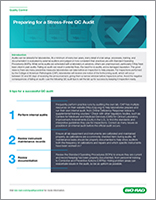
Download the Article
Share a little information with us to access the entire article now.
Thank you for your interest in ! Access the article here.
View ArticleRecommended Features
-
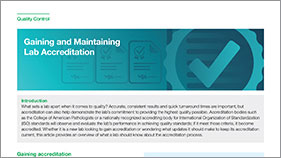
Gaining and Maintaining Lab Accreditation
Learn how to gain accreditation for your lab, stay up to date on lab standards, and maintain QC practices.
-
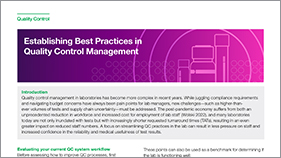
Establishing Best Practices in Quality Control Management
Streamline QC practices in your lab to optimize QC workflows and increase confidence in the accuracy of test results.
-
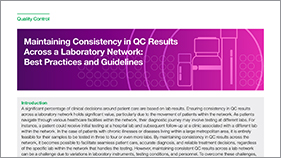
Maintaining Consistency in QC Results Across a Laboratory Network: Best Practices and Guidelines
How to maintain consistent and reliable QC results across lab networks and instruments.
